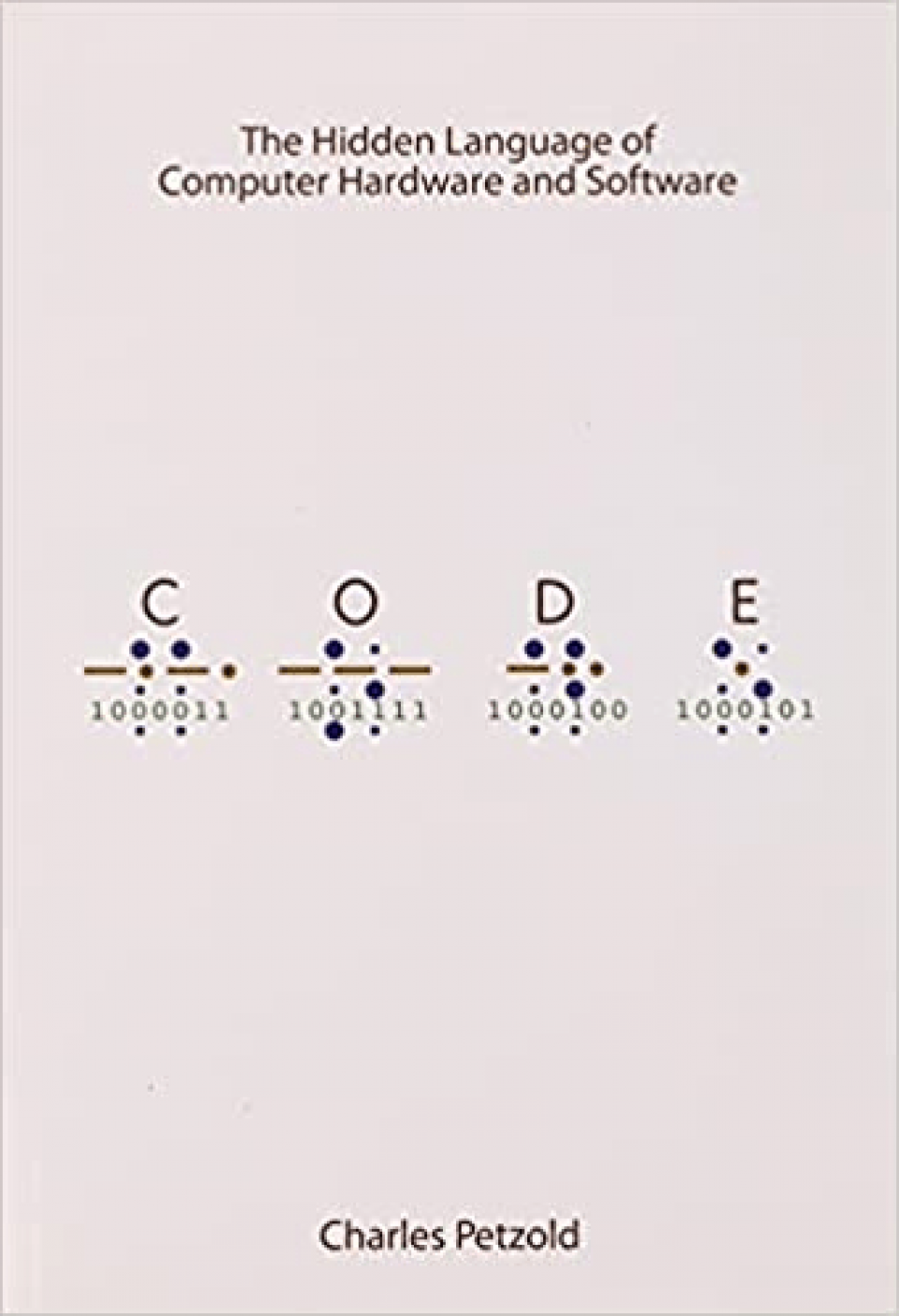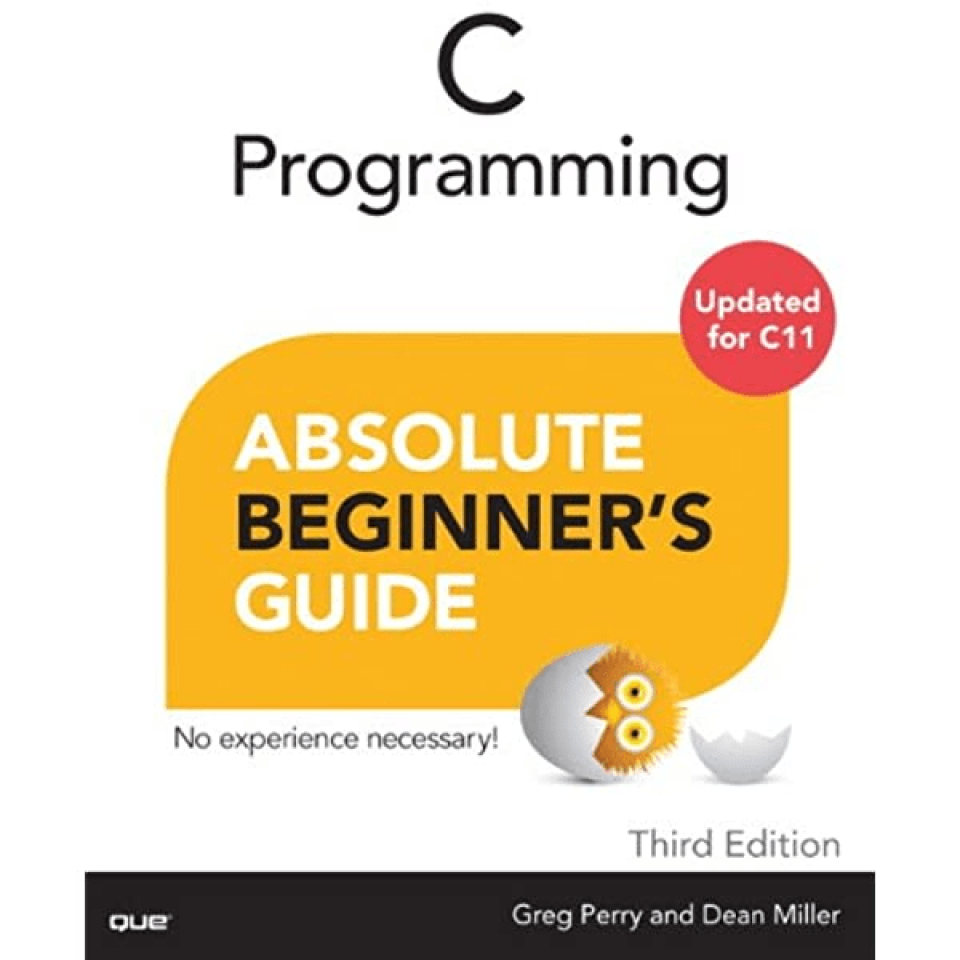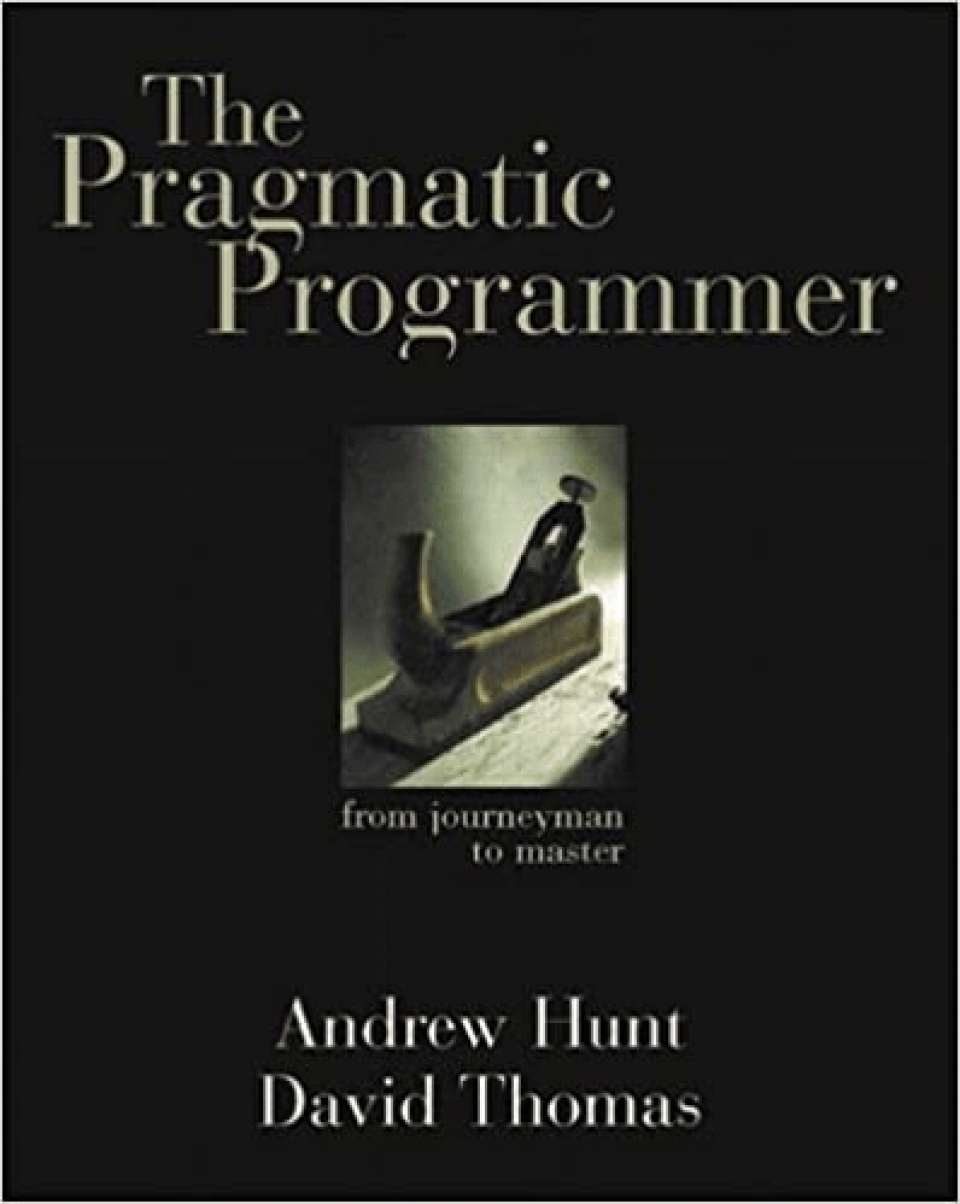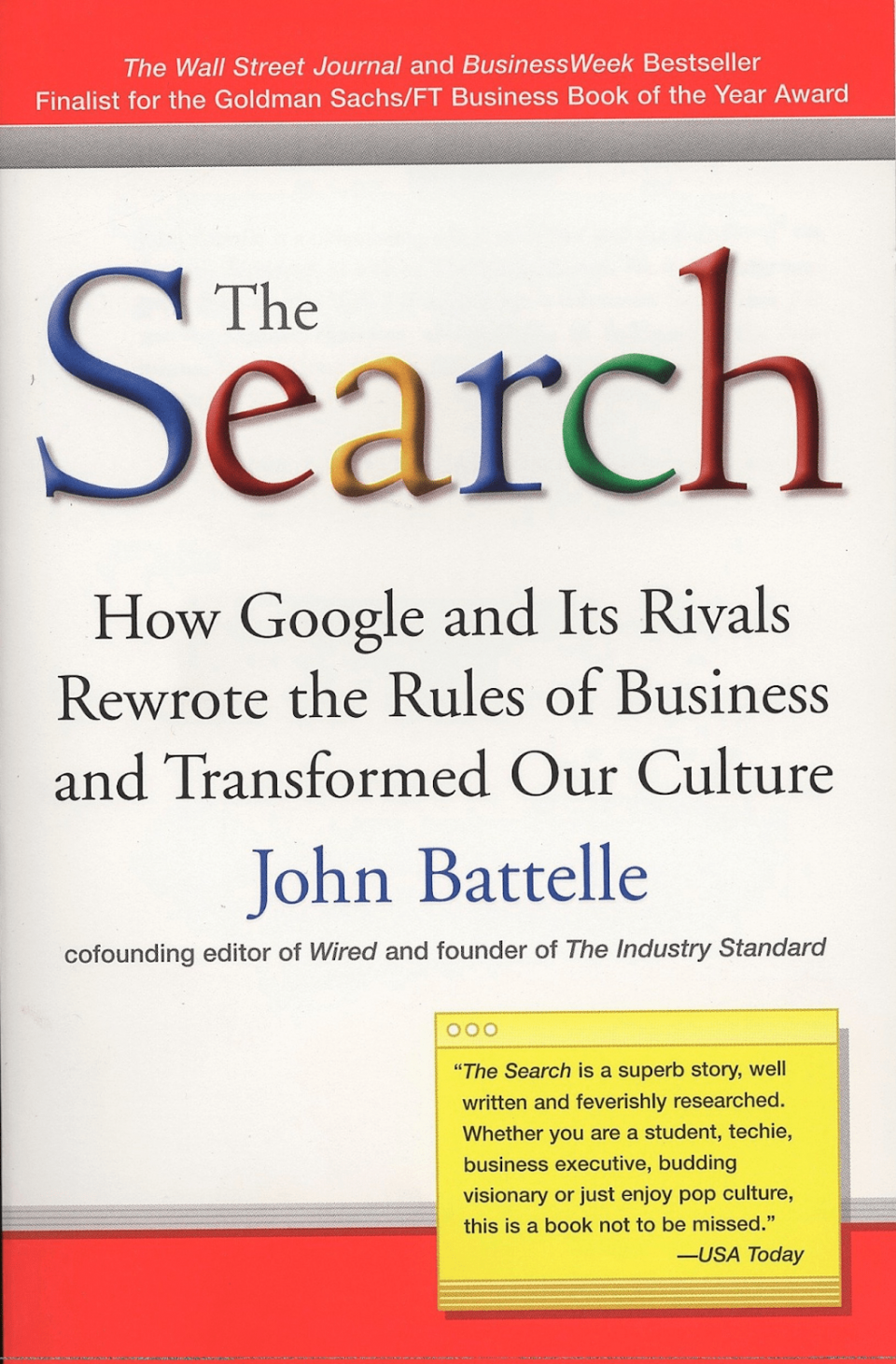Computer science is a broad and constantly evolving field — and that can make it feel overwhelming.
Where do you start if you want to learn more?
We’ve taken a look at some of the best computer science books and created a list for both beginners and IT professionals alike. These books serve as introductions, refreshers, and deeper explorations into the philosophies and real-world applications of computer science and programming.
Top Computer Science Books
You’re looking for the top computer science books. But first, you need to remember that computer science is a vast field. The top computer science books, including computer science audiobooks, will usually touch upon an array of skills, ranging from game development to systems administration.
Today, data analysis, cybersecurity, and programming are three of the fastest-growing disciplines within computer science. But computer science is much more than those three disciplines, as well. So, the best computer science books for beginners will usually be fairly broad in scope — from there, you can look for books in your areas of interest.
The Best Books for Computer Science Majors
Computer science majors need to learn a little about everything. Perhaps you’re still getting your degree — or maybe you’re trying to decide whether you even want a computer science degree. These are the best books for computer science majors who are still exploring the basic principles of computer science, coding, and administration.
1. The Self-Taught Computer Scientist (Cory Althoff, 2021)
Looking for the best books to learn computer science as someone with an intermediate background? An important beginner’s guide, The Self-Taught Computer Scientist is a great choice. It’s also a sequel to The Self-Taught Programmer. Both of these are excellent introductions to the discipline by an expert programmer and computer scientist. In this book, you’ll learn more about not only being a better programmer but also about how to ace programming job interviews. This book is perfect for those preparing to apply for jobs in the field, especially those who are moving from college to the workforce.
What You’ll Learn:
- Data structures
- Algorithms
- Technical interviews and interview questions
- Principles such as search trees and imported libraries
2. The Computer Science Book: A Complete Introduction (Thomas Johnson, 2024)
You can find everything you need to know about computer science in a single book: this one! The Computer Science Book is a perfect review for those who have finished college, a great introduction for those who are just starting college, and a supplement for those beginning a computer science career. This lengthy book covers countless computer science topics, from databases to operating systems.
What You’ll Learn:
- The theory of computation
- Concurrent programming
- Programming languages
- Distributed systems
- Compilers and interpreters
- Databases
- Operating systems
Computer Science 101: Master the Theory Behind Programming
3. The Chip: How Two Americans Invented the Microchip and Launched a Revolution (T.R. Reid, 2001)
No discipline is complete without an overview of history. This book tells the story of Jack Kilby and Robert Noyce, and their discovery of the silicon microchip — the culmination of their pursuit to make computers smaller and faster. In The Chip, T.R. Reid walks us through the history of the microchip and its consequences. Readers will emerge with a deeper understanding of the computer revolution, the principles and philosophies behind it, and its economic drivers.
What You’ll Learn:
- The history of the Nobel Prize-winning microchip
- How the information industry exploded
- How the numbers barrier was conquered
4. The Second Machine Age: Work, Progress, and Prosperity in a Time of Brilliant Technologies (Erik Brynjolfsson and Andrew McAfee, 2016)
In this book, the two authors from MIT discuss the ramifications of new technologies and the impact they’ll have on the world. This book is an important overview of how computer science actually impacts the world, its importance to society at large, and the potential consequences of using technology unwisely. An optimistic, beautiful look at the true power behind computer science, this book is an inspiration for computer majors and those who are considering the industry.
What You’ll Learn:
- How professions will change in the future.
- How data sets can transform entire industries
- How you can prepare for the “second machine age”
5. The Innovators: How a Group of Hackers, Geniuses, and Geeks Created the Digital Revolution (Walter Isaacson, 2014)
In The Innovators, Walter Isaacson digs back into history to identify the driving forces behind the digital revolution. Walter discusses historical figures from Ada Lovelace to Larry Page, exploring how inventors and entrepreneurs shaped the field of computer science. Not only does this book showcase how the computer science industry has changed over time, but also how entrepreneurship, innovation, and teamwork have continued to shape the computer science industry in the modern era.
What You’ll Learn:
- A history of computer science
- How innovation and entrepreneurship fundamentally altered the landscape
- What has separated inventors and entrepreneurs from the rest
6. Everything You Need to Know to Ace Computer Science and Coding (Workman Publishing, 2024)
From kids to teens, Everything You Need to Know to Ace Computer Science and Coding is the perfect book series for those who want to start learning early. This is a great gift book for someone who is heading into a computer science major, particularly those within the first two years of the discipline. This book is nearly 600 pages long, covering the intricacies of what computer science is, what a computer scientist can expect to do, and which specializations they might choose.
What You’ll Learn:
- The foundations of computing systems
- Binary code and algorithms
- Loops, events, and procedures
- The basics of Python, HTML, and CSS
- Web development
- Cybersecurity
The Best Computer Science Books for Developers
When many people think of computer science, they think of programming and development — but other disciplines like cybersecurity and systems administration also exist. The best books for programmers and developers generally cover either overall programming theory or the basics of a specific language.
7. A Programmer’s Guide to Computer Science (Dr. William Springer, 2019)
Ideal for bootcamp graduates, self-taught programmers, and college students, A Programmer’s Guide to Computer Science distills everything that a programmer or developer needs to understand about the field. This book covers the core fundamentals of computer science and speaks to what people need to know to decide whether this is the right path for them. This book is ideal for those who are still exploring the field or just getting started.
What You’ll Learn:
- The basics of computer science for self-taught programmers
- Algorithms, data structures, and data management
- Problem-solving techniques and complexity theory
8. Code: The Hidden Language of Computer Hardware and Software (Charles Petzold, 2000)
Though an older book, Code is an excellent introduction to programming and development. Code digs deep into how programming works, covering its foundations and philosophies as well. This book is a must-read for those who are just digging deep into understanding how programming actually works, including real-world examples. Since it uses many illustrated examples, everyday objects, and real-world scenarios, it’s great for those struggling to bridge the gap between abstract coding and real problems.
What You’ll Learn:
- The fundamental logic behind programming problems
- How programming is used to affect our world
- How computers interact with each other
9. C Programming Absolute Beginner’s Guide (Greg Perry, 2013)
Many programmers today began learning with either C or Java. Though C is a few decades old, it’s still an incredibly important language, as it’s considered foundational for many disciplines. Once you know C, it’s easy enough to learn about other programming languages. The C Programming Absolute Beginner’s Guide gives you everything you need to know about programming in C, even if you’ve never programmed before.
What You’ll Learn:
- The best free C programming tools
- How C programs are written and designed
- How to generate output and read input
- Controlling programs through testing
- Using loops and other techniques
10. Code Complete (Steve McConnell, 2004)
Code Complete can be seen as a technical manual for programming. Though it may be two decades old now, it digs more into the philosophy and architecture of programming rather than any specific language. This is a great book for both beginners and more advanced programmers who want to learn more about the discipline. Ultimately, most coding is just logic, and logical problems can be solved in logical ways — absent any programming syntax.
What You’ll Learn:
- Complexity-based design
- Collaborative development
- Defensive programming techniques
- Problem debugging
11. The Pragmatic Programmer (Andrew Hunt, 1999)
Though it was written a while back, The Pragmatic Programmer is an important book about the basic analysis and structure of programming. This is a great starting point for those who need to know about programming but don’t want to have to dig into a specific language. The Pragmatic Programmer will tell you more about writing clean, elegant code.
What You’ll Learn:
- The core processes of software development
- Writing flexible, dynamic, and adaptable code
- Automating code with greater precision
12. Algorithms 4th Edition (Robert Sedgewick, 2011)
Using Java, this book presents basic algorithms that both analysts and programmers will need to know. Perhaps most importantly, Algorithms is a no-fuss manual that just covers algorithms. There is a companion website for the book hosted by Princeton that also includes code tests. This is the perfect manual for those who are digging into programming and those who are preparing for interview questions.
What You’ll Learn:
- Java implementations
- Test data, exercises, and answers
- Dynamic visualizations
- Programming assignments and checklists
The Best Computer Science Books for Data Scientists
Data science is one of the fastest-growing and developing fields of computer science. The best data science books look into the fundamentals of data science, its evolution, and its philosophies.
13. Algorithms to Live By: The Computer Science of Human Decisions (Brian Christian, 2017)
How are algorithms able to help us understand people? In Algorithms to Live By, the author Brian Christian pairs with a cognitive scientist to better understand how technology is used to understand behaviors and decisions. Algorithms to Live By is perfect for those looking to go into data analytics, data science, or even marketing.
What You’ll Learn:
- How data science is used to untangle human questions
- Developing algorithms for real-time problems
- When things cannot be effectively analyzed.
14. The Search: How Google and Its Rivals Rewrote the Rules of Business and Transformed Our Culture (John Battele, 2006)
Really a history book, The Search talks about how Google was able to achieve supremacy within the search engine market. On a deeper level, The Search covers how search engines operate and how they impact business and decision-making processes. The search digs very deeply into the history of Google’s algorithm and how its analytics radically changed the playing field forever.
What You’ll Learn:
- How the Google search engine was developed
- The ramifications of search engines in decision-making
- How search engine algorithms and analytics function
15. Programming Collective Intelligence (Toby Segaran, 2007)
In this book, Python is used to outline methods by which intelligence can be programmed. It includes filtering techniques, evolving intelligence, problem-solving, search engine algorithms, and much more. This is a book that is ideal for those who are trying to learn the fundamentals of machine learning — those who want to see actual examples of how this is used.
What You’ll Learn:
- How to design databases and web applications
- How data sets can be mined and analyzed
- How statistics can be analyzed and understood
16. Machine Learning for Hackers: Case Studies and Algorithms to Get You Started (Drew Conway and John Myles White, 2012)
In Machine Learning for Hackers, programmers interested in data management, analysis, and machine learning will find out more about how to implement these structures. This is designed for those who have relatively in-depth knowledge of programming already, and for those who are moving into programming from other backgrounds, such as business, government, or academic research.
What You’ll Learn:
- How machine learning is used in the real world
- How to predict things using machine learning
- Optimization techniques and ciphers
- Statistical analysis and recommendation systems
The Best Computer Science Books for Cybersecurity
Cybersecurity is another swiftly growing discipline in the tech world, in part because its challenges today are greater than ever. Cybersecurity is significantly different from programming, development, and data science, although it does have some crossover — which means those who are interested in cybersecurity or network administration will be reading different books.
17. Cybersecurity for Beginners (Raef Meeuwisse, 2017)
Cybersecurity for Beginners covers the essentials of cybersecurity for those who are just getting into the field or those who have a non-technical background. Today, cybersecurity is everyone’s responsibility and it intersects with everyone’s life, from securing your email passwords to your bank accounts. This presents cybersecurity in an easy to comprehend way, without a lot of jargon or difficult concepts.
What You’ll Learn:
- The basic principles of cybersecurity
- What makes cybersecurity so essential
- Why cybersecurity is steadily becoming more of a challenge
18. Social Engineering: The Science of Human Hacking (Christopher Hadnagy, 2018)
A lot of cybersecurity isn’t about systems but rather about people. It’s people who represent the most significant vulnerabilities within systems. And it’s people who are hardest to defend against. Social engineering governs a type of cyberattack that uses people rather than machines; just convincing someone to give you their password can be much easier than trying to hack a system. This book covers the ins and outs of social engineering and what makes it so dangerous.
What You’ll Learn:
- Common social engineering techniques
- Defenses against social engineering
- How social engineering is evolving
19. The Hacking Guide for Beginners: A Step by Step Guide (Ramon Nastase, 2018)
Who knows hacking better than hackers? In Introduction to Hacking, also referred to as The Hacking Guide for Beginners, Ramon Nastase goes through the most common methods of hacking from a hacker’s perspective. That includes the basics of Kali Linux (a security and hacker-based system), cybersecurity, Google hacking, and WordPress hacking. If you want to become a white hat hacker or just secure your own systems, this is a great book for you.
What You’ll Learn:
- The basics of hacking
- Kali Linux, WordPress security, and Google hacking
- Cryptography, digital signatures, and hiding your tracks
Beyond the Top Computer Science Books
Above, we’ve covered some of the best books on computer science. But even with the best computer science books, you generally need some real-world experience. Quite a few programmers, developers, cybersecurity experts, and network administrators are self-taught individuals who either learned through practice or on the job.
While a book is a great introduction, it must be combined with work. If you want to learn more about computer science, don’t stop with computer science books. Consider getting an online computer science degree, attending a computer science bootcamp, or just starting a few beginner’s lessons. Over time, you’ll get a feel for how you want your career to look.
11 Best Online Free Coding Bootcamps



















